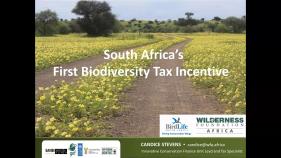
A well-functioning nature is essential for sustainable development, which is based on the balance between economic growth, social inclusion and the protection of the environment. 80% of the human diet comes from animal and vegetal species, so the decline of ecosystems not only affects the life of individuals, but also the entire society. Besides, biodiversity is vital for the economy: something as subtle as pollination is conditional for producing medicines, bio-fuels, fibers and construction materials. Chile is not exempt from this fact: 17.4% of its GDP and over a half of its exportations directly depend on natural resources.
The loss and decline of biodiversity is a global process which is also present in Chile. In this country, the negative impacts are related to: (i) changes in land use, (ii) the introduction and spread of invasive exotic species, (iii) the intensive development of primary production sectors, (iv) forest fires and, (v) climate change. This is enhanced by practices and policies of the private sector and also of the State. Additionally, the allocated budgets for biodiversity protection are comparatively low to those given for productive development, which have an impact on nature. The analysis of the central government spending on biodiversity shows its low incidence: 0.036% of GDP (2014). Since optimization and redistribution of the available resources are required, it is suggested to enhance biodiversity funding through public policies aimed at: the environmental institutions strengthening, the implementation of an economic model based on the sustainable use of natural resources, and the expansion of market instruments to ease the support of the private sector for biodiversity funding.



